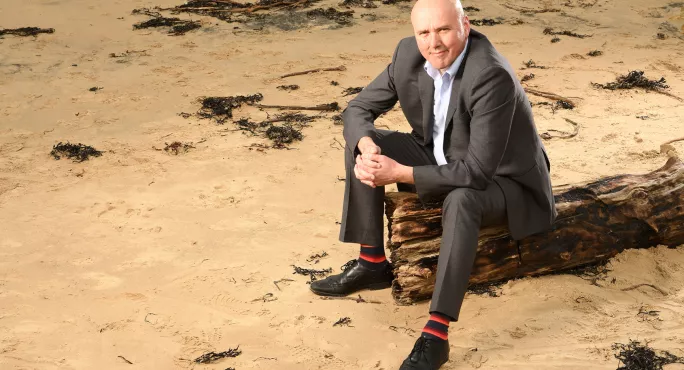“I won’t put any expletives in this interview, but I’ve been called a ‘bald this and bald that’…and I think there’s a skill of being able to understand where it’s coming from and being able to absorb that.”
New NASUWT president Phil Kemp speaks candidly about the “soft skills” that have enabled him to teach some of North Tyneside’s most challenging pupils during a career in alternative provision over the past 20 years.
“[The pupils] are not angry with me,” he says. “Often they’re angry because they’re angry - and you become the target…
Read: How to teach soft skills but stay tough on curriculum
Opinion: ‘Our students need Dickens - not soft skills’
Read: Soft skills like creativity ‘key to economic recovery’
“It’s a skill. And the other soft skill is - after that moment where they’ve exploded - having the ability to put the building blocks back together to rebuild that relationship, and with the staff I have now that would be done very quickly and very appropriately and, literally, within a very short space of time that young person will be back where they need to be learning.”
Mr Kemp, who has launched his presidency this weekend with an impassioned speech against academy boss pay, told Tes his proudest achievement has been running an alternative-provision unit for North Tyneside Council.
The value of ‘soft skills’ for teachers
It’s a place where, he says, over the past 10 years he and his team have helped more than a thousand key stage 4 pupils at risk of exclusions to gain “far more than what they would have done” in mainstream schools. And that includes some “fantastic” GCSE results.
But without soft skills, he says, his teachers would have struggled to engage pupils or understand the barriers they face because “some approaches work better for some kids”.
“We’ve heard governments of both colours saying, ‘We want the very best teachers dealing with difficult situations,’ but I don’t think it’s about actually having the very best teachers adding pedagogy,” he says.
“I think it’s actually [about] having teachers who are good teachers but have [also] got this soft skills set - which is so important - who actually engage with this particular group of youngsters and the barriers they face.”
When dealing with incidents in the classroom, he says it’s all about being able to make “a quick judgement”.
“Sometimes you actually have to be quite firm but it’s picking the right time,” he says.
In response to remarks made by education secretary Gavin Williamson last month in which he backed lessons with children facing the front, Mr Kemp said: “I could pull together 15 of my students now and I’ll sit [them] in a room with Gavin Williamson and I would like to see him or anybody get these kids sitting in rows and try and deliver the curriculum.
“And that’s the trouble with education. I think quite often it’s a one-size-fits-all approach, and I think that some approaches work better for some kids and other approaches work better for others…and people go on about an individualised curriculum but it’s not the curriculum that’s the issue - it’s the delivery model.”
“It’s how that curriculum is delivered. And I don’t think enough thought goes into that and the reason is that it gets expensive.”
Phil Kemp is profiled in next week’s Tes magazine.
